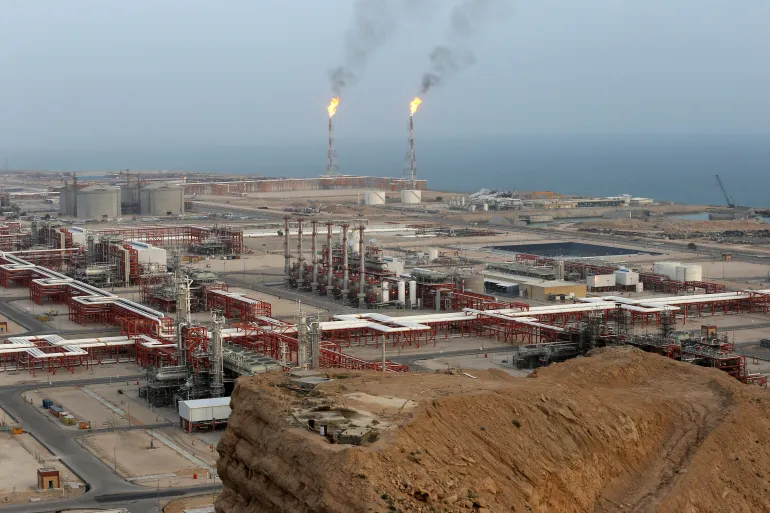In a recent series of events, two explosions on Iran’s key south-north gas pipeline network have caused disruptions in gas supplies in multiple provinces. Iran, quick to point fingers, has accused Israel of being behind these attacks, further escalating tensions between the two nations amidst the ongoing conflict in Gaza.
Iran’s Oil Minister, Javad Owji, proclaimed that the explosions were the work of Israel during a cabinet meeting. He described the attacks as a “terrorist act or sabotage,” without providing any concrete evidence to support his claim. Owji also highlighted that the enemy’s intention was to disrupt gas services and put the people’s gas distribution at risk.
While Israel has not officially claimed responsibility for the attacks, it is important to note that the country rarely acknowledges its espionage missions abroad. This is not the first time Iran has blamed Israel for acts of sabotage, as they have previously accused them of similar actions in the past.
The explosions targeted a natural gas pipeline that stretches approximately 1,270km from Iran’s western Chaharmahal and Bakhtiari province up north to cities along the Caspian Sea. Thankfully, no casualties have been reported thus far. However, the attacks have resulted in disrupted supplies in the provinces of North Khorasan, Lorestan, and Zanjan.
These recent events bear resemblance to a series of unclaimed assaults on gas pipelines that occurred in 2011, including an attack coinciding with Iran’s revolutionary anniversary. It is crucial to consider this context and the recurring pattern of alleged sabotage Iran has experienced.
In December, a hacking group with alleged ties to Israel claimed responsibility for a cyberattack that disrupted up to 70 percent of Iran’s petrol stations. This further fuels Iran’s suspicions and strengthens their belief that Israel is behind these acts of aggression.
Israel has previously carried out attacks in Iran, primarily targeting its nuclear and military facilities. The ongoing war in Gaza has only exacerbated the strained relations between the two nations. Additionally, the Iran-aligned Yemeni Houthis have also launched attacks on Israel and shipping in the Red Sea as a show of solidarity with Palestinians in Gaza.
Furthermore, Israel and the Iran-linked Lebanese armed group Hezbollah have been engaging in increasingly deadly cross-border attacks for several months now. These incidents highlight the volatile situation in the region and the potential for further escalation.
As tensions continue to rise between Iran and Israel, it is imperative for the international community to closely monitor the situation and work towards de-escalation. The disruption of gas supplies not only affects Iran but also has implications for the wider region. A peaceful resolution must be sought to prevent further deterioration of relations and potential conflict.




